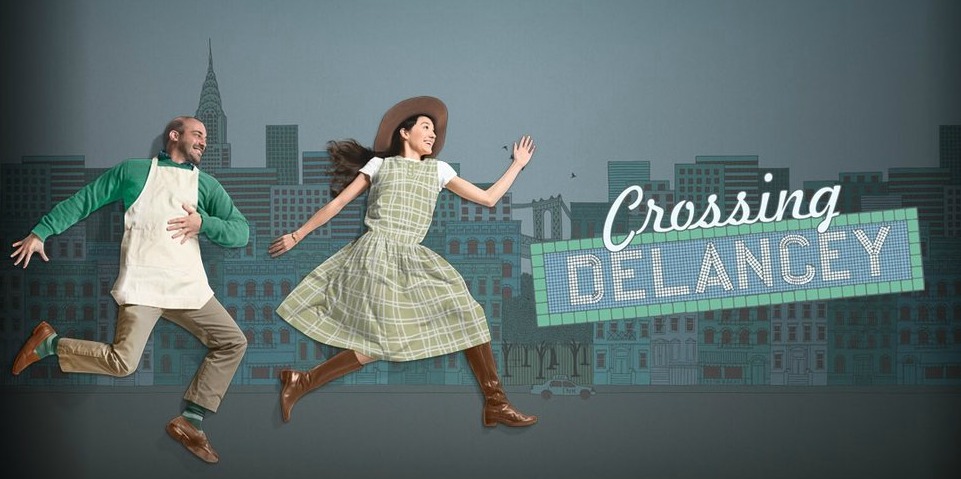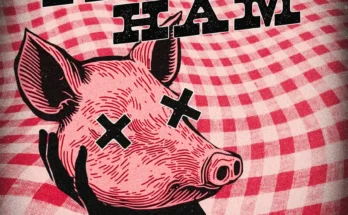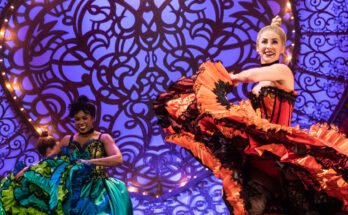WITH ‘CROSSING DELANCEY,’ THE ALLIANCE THEATRE SPEAKS TO THE HEART OF METRO ATLANTA’S JEWISH COMMUNITY
::
“Crossing Delancey” runs Oct. 7-Nov. 25 at the Marcus Jewish Community Center of Atlanta, part of the Alliance Theatre’s 2017/18 on-the-road season, made necessary by renovations at its Woodruff Arts Center space. Tickets, details HERE
::
EVERYBODY OUGHT to have a Bubbie.
A Bubbie to look out for you, to help you stay connected to your heritage. One who hugs you too much, feeds you too much and loves you unconditionally.

The Yiddish name for grandmother is “bubbe.” In the Jewish tradition, one’s grandma has affectionately been called Bubbie (or Bubbe or Bubby).
“Bubbie only wants the best for you,” says Toronto-based director Leora Morris, 33. “But our Bubbie doesn’t just want to tell you what’s best, she also wants you to figure it out for yourself.”
Since the Alliance’s Woodruff Center space is in the midst of a multimillion-dollar redo this season, its shows are being staged nomadically, at venues that make sense. Artistic director Susan V. Booth and Co. teamed Delancey with the Marcus Jewish Community Center of Atlanta.
Susan Sandler’s romantic stage comedy fits the MJCCA, a popular gathering place for greater Atlanta’s Jewish community. They, among other audiences, should delight in Crossing Delancey’s use of Yiddish words and phrases. (Stop hocking me a chineick, for example, literally means “stop banging a teapot at me,” which means “stop annoying me”).
The rom-com thrives on the deep bond between a determined Bubbie (Atlanta actor Mary Lynn Owen) and her devoted granddaughter, Isabelle “Izzy” Grossman (Toronto actor Sochi Fried), who’s in her late 20s. And single. The piece reminds young people that it’s important to have older people in their lives, Morris says, and vice versa.
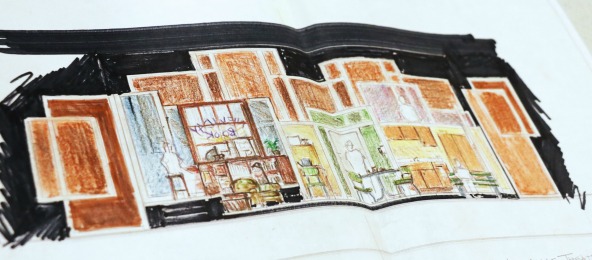
The 1985 stage play became a 1988 movie with Amy Irving as Izzy and the late Reizl Bozyk as Bubbie. This isn’t a world with cellphones and Match.com. It was still feasible that a Jewish grandmother might enlist a marriage-broker friend to help her granddaughter find Mr. Right.
The matchmaker, named Hannah (Atlanta native Joanna Daniels), thinks pickle merchant Sam (Atlanta actor Andrew Benator), a standup guy who works hard to avoid smelling like pickle juice, is a fine mate for Izzy. Izzy is more interested in a handsome author (Atlanta actor Daniel Thomas May; more on his stage return below). She doesn’t buy the whole arranged-marriage idea but gets pushback from Hannah, who argues that Izzy must concentrate on finding a good and kind man.
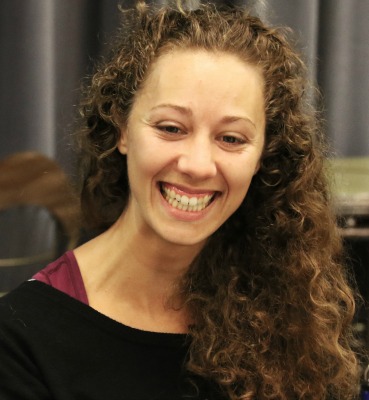
Bubbie, who’s in her 80s, came to the United States as a girl and never left Manhattan’s Lower East Side. Izzy lives uptown, “with bars on the windows like a prison,” Bubbie moans. “Someone should crawl in at night, I’m always thinking.”
Morris thinks of the ’80s as a moment in New York City when social mobility shifted “in a revolutionary way.” Earlier Jewish immigrants were largely Yiddish-speaking tailors and bakers, who found a tight-knit world in the Lower East Side. By the 1970s and ’80s, these immigrants and their offspring also had become part of the Upper West Side’s intelligentsia.
Delancey speaks to what it might have felt like then, Morris says, to be a contemporary Jewish woman uptown when your roots and customs were still downtown.
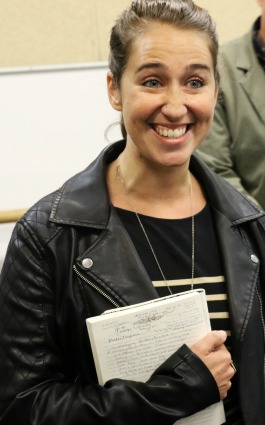
Morris, a graduate of the Yale School of Drama’s M.F.A. directing program, spent last season as the Alliance’s Yale Directing Fellow. Booth had long admired Crossing Delancey, asked Morris to read it, then learned the young director felt a personal connection. As a Jewish woman who has wrestled with career and commitment, Morris could relate.
She believes theatergoers today will relate to the romantic comedy as well as the humanity of the characters.
“The matchmaker may have become Match.com or JDate,” she says, “but the central questions haven’t changed much. The very human drama of figuring out who to love and how to identify who you love is not going away.”
::
Daniel Thomas May: Onstage again
Daniel Thomas May is a popular and versatile Atlanta actor, but you haven’t seen him on a metro stage since he played Dr. Givings in Synchronicity Theatre’s 2015 telling of In the Next Room, or the vibrator play by Sarah Ruhl.
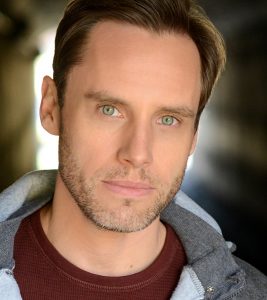
He sees Crossing Delancey as the right vehicle at the right moment, playing Tyler Moss, an author with whom leading lady Izzy is infatuated.
“Why me for this role?” he asks. “Maybe because I have a good range. I’ve done the romantic lead, and I’ve done the cad. I’m fortunate to be able to do either, and I can have fun with both.”
May’s face is familiar to Alliance audiences (many Christmas Carols, among other roles). He was a longtime member of Georgia Shakespeare’ repertory company and has twice played Stanley Kowalski in A Streetcar Named Desire. Creative Loafing voted him “Atlanta’s best actor” several times, and he’s a six-time nominee for Atlanta theater’s Suzi Bass awards. Twice he’s been in the group of actors to win “best ensemble.”
May has been focusing on being a dad of late, and doing film/TV work, which often requires less of a time commitment than stage work does. He and wife Rachel May, co-founder and producing artistic director of Atlanta’s Synchronicity, have a 10-year-old and 7-year-old twins.
On TV, May, who was raised in Snellville, has had roles in “Sleepy Hollow,” “Nashville” and “Drop Dead Diva.” In 2012, he played a protective dad named Allen on AMC’s “The Walking Dead,” returning four years later for a flashback scene.
“‘The Walking Dead’ was a great experience because it was my first real opportunity in TV to work as part of an ensemble,” May says. More often he’s on set for a day or two, as he was with “CrazySexyCool: The TLC Story,” a TV movie in which he played a lawyer.
Two years ago, May shot the Tom Cruise movie now called American Made, playing “CIA Man.” It hit movie theaters in late September. He’ll also be a preacher’s son in “Lore,” a creepy Amazon series that starts streaming in mid-October.
Still, theater is his love. “The process and presentation of stage work, of being able to do a story from beginning to end during the course of one evening, that’s what’s in my blood,” he says, “and I’m always going to come back to it.”

